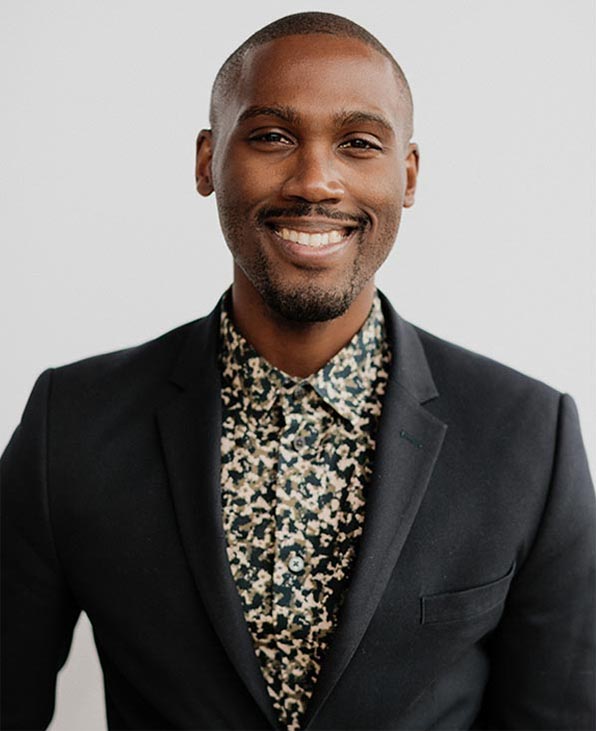In this moment many organizations are scrambling to articulate commitments to DEI, anti-racism, and racial justice and to do the hard work of living and leading in alignment with those commitments. As leaders work to figure out how to do all of that, there is often a tendency to turn to Black and Brown folks (or folks with other historically marginalized identities) to ask for input, help, guidance, and leadership. When that tendency kicks in, the “burden alert” should sound!
Burden: a load, typically a heavy one
On top of the day-to-day responsibilities actually associated with our roles, Black and Brown staff members are often tasked with the additional work of leading the charge on DEI-related challenges. This burden often goes unacknowledged. We help with cultivating diverse candidate pipelines. We are expected to speak up to surface difficult moments around race or to guide the conversations that follow from those moments. We are asked to explain to white colleagues what other Black and Brown folks might be experiencing. We are asked to speak on behalf of or “represent” our racial/ethnic groups although, importantly, we are not a monolith so this is not actually possible. There are so many more examples of the invisible labor we are asked to shoulder in service of helping our organizations drive forward progress toward DEI generally and racial justice more specifically. One critical move for allies in this work is to consider when and how to thoughtfully engage Black and Brown folks (or folks with other historically marginalized identities) without causing undue burden or harm. In short, when you hear the burden alarm, pay attention. Some questions to consider:
Am I asking my Black and Brown colleagues to do more work (time, ideas, energy, emotional labor) for free?
If you are asking people of color to lead others around them to a place of higher consciousness, deeper skill, more informed action, and if you are asking us to do that without additional compensation, that’s a problem. Our work doesn’t come for free (anymore)…especially when it’s catch-up work that we all should have been doing prior to the current national awakening around racial injustice. And, many of us are already doing extra work to survive and thrive in a professional context where white supremacy culture norms are stitched into the fabric that binds our organizations’ cultures, systems, and policies.
Am I feeling entitled to access the emotional labor, pain, or trauma of my Black and Brown colleagues just because they are being paid?
Wrong – you can pay for a percentage of my time, my ideas, and my work but compensation doesn’t entitle anyone to access my trauma or expose my pain. My racial experience is not an amusement park where one entrance fee grants full access. So, if you’re feeling entitled to hear about micro or macro aggressions I have persisted through, how I worked through them or “what it is/was like,” then think again. It is my choice to share what I share, when I share it, with whom, and for what purpose.
Am I keeping my Black and Brown colleagues from opportunities in an effort to shield them from burden?
We often see good intentions translating to “saving” Black and Brown staff from burden. You might find yourself wanting to “protect” us from the pressures of speaking in the C-suite meeting about our experiences. You may find yourself “shielding” Black and Brown colleagues from the time investment involved in conducting that research about inequity in the organization. You may be trying to help us “preserve” energy from having to serve on that anti-racism committee. You may be looking to “keep me safe” from the vulnerability of serving on that panel of Black and Brown folks in front of a large audience. The problem here is that now good intentions have silenced me, minimized my opportunities, and suppressed my creativity and strategic thinking. Please don’t do that, either.
Here is the good news: the to do list is clear and simple. Treat Black and Brown people like the intelligent, capable, multi-faceted, strong, resilient, choiceful colleagues that we are by offering us equitable opportunities and informed consent.
Informed Consent: permission granted in the knowledge of the possible consequences
It is incumbent upon you (or the person asking or expecting my additional labor) to:
- Let me know what is being asked of me;
- Ensure that it is being equitably offered (by making sure I have bandwidth to take it on, by taking something else off my plate, or by offering me fair compensation);
- Enable my informed consent by making the opportunity clear to me (how much time this will take, what specifically you are asking me to do for whom and with whom, for how long, who the outcome benefits, etc.); and
- Understand that consent is dynamic. In other words, just as what you’re asking of me may change over time, so might my answer.
With this information, I can make my own decision about whether the opportunity feels exciting, gives me energy, lets my creativity shine, enables me to use my voice and my power, allows me to create deeper impact, etc. – OR if I feel like not this opportunity, not today. And when I pass, my decision shouldn’t come with retribution. In addition, my “no” doesn’t translate to a “no” from other Black and Brown staff (again, we are not a racial/ethnic monolith; we are individuals with different lived experiences and varying ideas, beliefs, and needs!).
Black and Brown folks (and folks with other historically marginalized identities) have a lifetime of experience and knowledge to share and organizations have a lot to gain from us. That said, if you find yourself in a moment where you most need to access that expertise, beware of causing unfair burden. Instead, ensure that opportunities are being offered in equitable ways and alongside the information required for informed consent. When the burden alarm rings, don’t hit snooze.
XIOMARA PADAMSEE
Founder & Chief Executive Officer
She/Her/Hers
Contact Xiomara: xiomara@promise54.org
CORNELIUS LEE
Partner
He/Him/His
Contact Cornelius: cornelius@promise54.org


